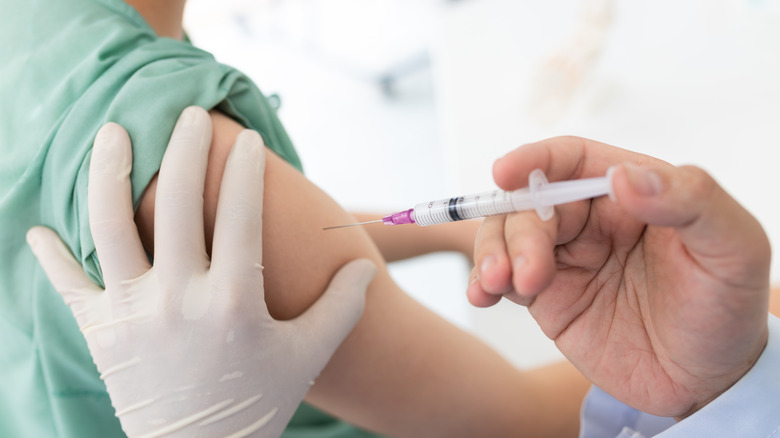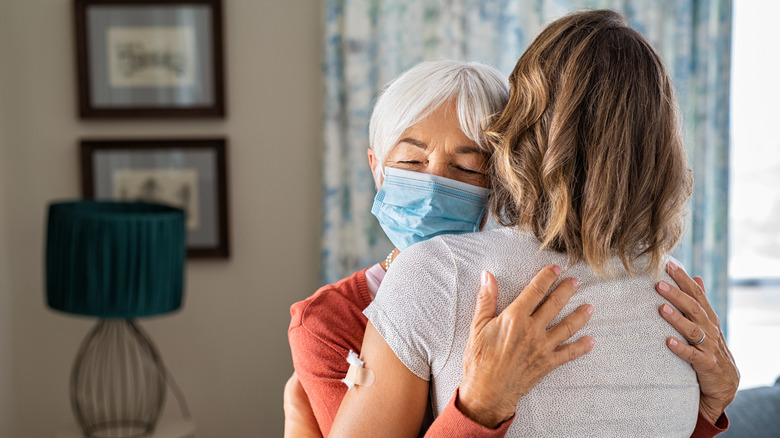The Real Difference Between Vaccination And Immunization
Medical terms can be confusing. Either they're rooted in languages people are unfamiliar with or it's hard to see how they relate to their meaning. Just look at the term "grossly homogeneous". The phrase looks scary but when you're talking about a thyroid, it just means the thyroid is "largely the same", i.e. healthy.
And all of this gets even more complicated because of the way society adapts medical language to non-medical situations. Almost everyone has a friend who says they're "so OCD" when someone comments on their clean apartment. The person probably does not have obsessive compulsive disorder, a condition marked by intrusive thoughts and behaviors that can greatly disrupt or even derail parts of a person's life. They're just particular about how things are kept. But we're so used to using "OCD" as a catch-all term that people don't understand why OCD is a serious diagnosis.
This issue doesn't just affect relatively rare mental health issues, however. The terms "vaccination" and "immunization" are often used interchangeably. And that is pretty understandable, the terms are closely related. But they have two distinct meanings, and knowing the difference can help people understand the importance of vaccination.
Small difference, big impact
The U.S. Department of Health and Human Services defines vaccination as the act of receiving a vaccine. They add that while most vaccines are delivered as a shot, some can be administered orally or as a spray. Immunization, on the other hand, is specifically the process your body goes through as you become immune to a disease.
You can receive a vaccine and not go through full immunization, like with the first dose of Moderna or the annual flu vaccine. These vaccines offer partial immunity but they have to be renewed. It is also possible to potentially develop immunity without a vaccine. This is not advised, however. As the World Health Organizations states, vaccines contain dead or weakened versions of a disease so that people do not get sick. Exposing yourself to the full strength disease could lead to serious health issues and even death, depending on the disease.
This is especially true for people with compromised immune systems. The CDC tells us that certain groups—like the very young, the very old, cancer survivors, and those with HIV to name a few—cannot safely undergo immunization. Their systems cannot handle it. And that is why immunization is so important for those with healthy immune systems. The CDC explains that immunized people are less likely to pass diseases to those who cannot get a vaccine, protecting the vulnerable among us. It's a small difference in words that can have a huge impact.


